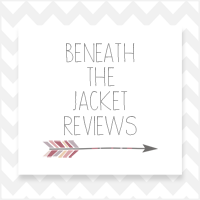Death Coming Up the Hill
by Chris Crowe
Bibliography:
Crowe, Chris. Death Coming Up the Hill. New York: HMH Books for Young Readers, 2014. Print.
Poetic Elements: Of all of the poetic elements throughout this specific novel, one of the greatest is the emotional impact. It is a roller coaster of emotions as the read goes through the life of the protagonist, Ashe. Occasionally their are glimpses of extreme happiness for Ashe, but other times there is an abundance of sadness and disappointment. Not only is a war going on in Vietnam, but there is a war going on in his own home; between his mother and father that are two very different people. They stay together for their mutual love of their son, but it does not make an easy environment to live in. Another element that is abundant in the verse novel is imagery and figurative language. There is a fair amount of metaphor, often extended, and brings the story to life as we learn the news about the war alongside Ashe.
Appeal: The overall appeal of this novel is an interesting mix of elements for readers, especially young readers. On one side of the spectrum, there are many students who will be able to relate to Ashe and his family situation. He is trying to survive high school, think about his possible future choices, and deal with parents who cannot stand each other at home. A lot of students can relate to these things, and it will bring them comfort seeing a protagonist who may be facing similar issues. On the other side of the spectrum, the students can learn a great deal about history through this verse novel. They were not alive through the Vietnam war, and so they do not know what that period of time in America was like. They were not alive through all of the death and upset, and so this book gives the a real insight into how an individual their age would react during a similar situation. Therefore, this novel gives students something they can relate to, while also giving them the ability to learn more about history.
Overall Quality: The overall quality of this novel was quite good. As someone who does not typically enjoy poetry myself, I was quite involved in the reading of this novel. While I had trouble with the format because it is so different than what I am used to, I was able to continue reading through the book because I was invested in the characters and the story, and I needed to know what was going to happen next. Overall, the format does seem to add to the story, though it does seem as if this could be a typical fiction novel as well, written in prose, which might draw the attention of more young adults. For the most part, there is also a wide range of emotions covered throughout the novel, having a steady balance of light-hearted and deep.
The Poets: Chris Crowe is the singular poet of this book, and the whole text is written by him alone. It is clear that he has done a great deal of research and has an abundance of information and knowledge of the time period that he chose to cover in his book. Not only is Ashe discovering what is happening during the war, the reader is able to learn this information as well, making Crowe a fabulous poet.
Layout: The layout of this book is what really makes it stand apart from other novels written in verse. The whole novel is written in haiku style verse, focusing on the amount of syllables to make up the three lines per stanza. After reading through some information over Crowe, it seems that he wrote as many syllables as the number of American soldiers killed in the Vietnam war. Very impressive for Crowe to embed this information so fluidly into his piece. Personally, this style was not my favorite as the stanzas and lines were much choppier than I typically prefer, but I do think that many readers will enjoy this format.
Spotlight Poem:
"How does a guy deal
with being torn between two
people he loves? I
knew I was lucky
that I hadn't had to choose
between Mom and Dad.
They're opposites thrown
together because of me,
and they had managed
to keep a shaky
truce for so many years. But
it was difficult.
My dad was a flag-
waving hawk who thought it was
every red-blooded
man's duty to spill
that blood when America
called on him for it.
Mom's an anti-war
dove who gave me a 'Hell no,
I won't go!' tee shirt
for Christmas and she'd
convinced dad and me that I
had to enroll at
ASU as soon
as I finished high school. 'The
student deferment
will keep you out of
the draft,' she said, 'and unless
we're really stupid,
this war will be done
by the time you graduate.'
Dad didn't mind the
deferment. 'You can
join the ROTC and
graduate as an
officer,' he said.
'The Army needs smart leaders
who can help put an
end to the spread of
Communism over in
Vietnam. But when
I thought about the
four hundred seventy-one
guys who died last week,
I knew I'd go to
college to avoid the war,
not prepare for it.
With this spotlight poem, it would make sense to focus on the format and layout of a haiku poem, and why Crowe might format the poems in this way. They could count the number of syllables, and make sure that it is actually consistent through the poem, since this is something that students often struggle with. There are also a couple of examples of figurative language that I would have students identify and explain what they mean, and perhaps have students create an illustration of these metaphors.
"How does a guy deal
with being torn between two
people he loves? I
knew I was lucky
that I hadn't had to choose
between Mom and Dad.
They're opposites thrown
together because of me,
and they had managed
to keep a shaky
truce for so many years. But
it was difficult.
My dad was a flag-
waving hawk who thought it was
every red-blooded
man's duty to spill
that blood when America
called on him for it.
Mom's an anti-war
dove who gave me a 'Hell no,
I won't go!' tee shirt
for Christmas and she'd
convinced dad and me that I
had to enroll at
ASU as soon
as I finished high school. 'The
student deferment
will keep you out of
the draft,' she said, 'and unless
we're really stupid,
this war will be done
by the time you graduate.'
Dad didn't mind the
deferment. 'You can
join the ROTC and
graduate as an
officer,' he said.
'The Army needs smart leaders
who can help put an
end to the spread of
Communism over in
Vietnam. But when
I thought about the
four hundred seventy-one
guys who died last week,
I knew I'd go to
college to avoid the war,
not prepare for it.
With this spotlight poem, it would make sense to focus on the format and layout of a haiku poem, and why Crowe might format the poems in this way. They could count the number of syllables, and make sure that it is actually consistent through the poem, since this is something that students often struggle with. There are also a couple of examples of figurative language that I would have students identify and explain what they mean, and perhaps have students create an illustration of these metaphors.

















No comments:
Post a Comment